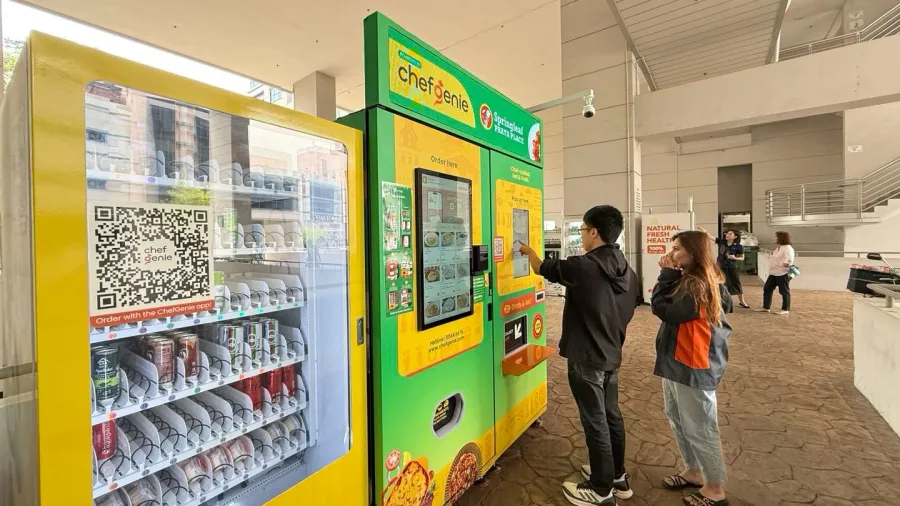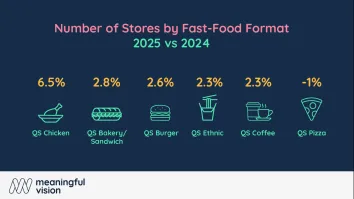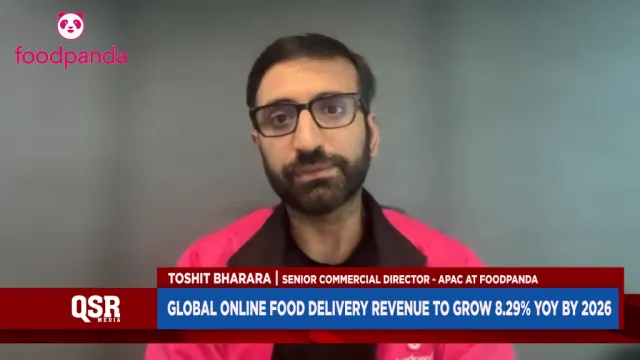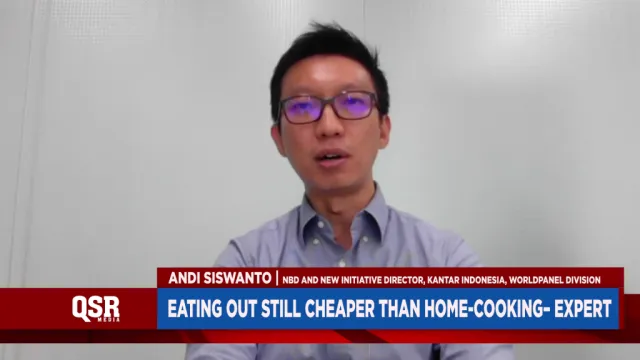
F&B firms turn to smart vending machines as closures mount
The government is looking into developing 'automated kitchens'
Singapore’s food and beverage (F&B) industry is testing automated vending kitchens as a way to survive soaring costs and a potential repeat of last year’s record wave of closures.
Food tech firm Aikit Pte. Ltd. launched a six-month pilot in September for ChefGenie, an artificial intelligence (AI)-powered “automated kitchen” developed with Enterprise Singapore under the Ministry of Trade and Industry.
Born from Aikit’s earlier success with InstaChef, which delivered hot meals through smart vending, ChefGenie builds on real purchase data to help local F&B brands adopt autonomous kitchen technology—allowing them to scale faster and operate more efficiently.
The platform gives restaurants a manpower-light expansion model whilst improving consumer trust in ready-to-cook vending meals.
The machine cooks dishes only when an order is placed, distinguishing it from traditional preheated vending systems. People think vending meals are just frozen food reheated, Aikit Marketing Manager Crono Lee said, adding that they want that first bite to feel restaurant-quality.
“Even my father, who is 70, was thinking: ‘What’s this fried rice? Is it just frozen food?’ I said: ‘No, it was actually prepared today,’” he told Singapore Business Review via Zoom. His father liked it after trying it himself.
ChefGenie uses a mix of microwave and induction cooking for precise temperature control, allowing complex dishes such as claypot chicken rice.
Each product has a five-day shelf life and passes government testing. Lee noted that busy sites could see machines restocked as often as three times a day.
The trial comes as operators face tightening margins. Savills data show monthly prime retail rents rose 0.5% in the third quarter to $28.40 per square foot, whilst food service workers earn an average of $2,391 a month, according to Indeed. From January to September, 2,286 F&B firms closed, nearing last year’s record 3,047.
“Rental costs are at their peak, and skilled manpower is always a big challenge,” Lee said. The pilot seeks to help restaurants expand through smaller, unmanned locations. Instead of one or two outlets, brands could add three or more vending sites, he added.
Singapore’s consumers are open to automation. GlobalData Plc found that 55% of respondents in the city-state regularly order using QR codes, compared with 33% globally.
Yet Tim Hill, the firm’s key account director for Southeast Asia, warned that too much automation could dull the dining experience.
He cited the robotic cocktail bar at Changi Airport that offers a free cocktail drink in return for downloading an app.
“Despite the twin offers of a free drink and the novelty of witnessing a robot shaker, it is the most boring bar in Singapore,” he said in a Zoom interview. “Punters would rather pay heavily inflated prices to have a real person do this for them elsewhere in the terminal.”
For some brands, vending remains a mixed proposition. SaladStop! CEO Adrien Desbaillets said his chain tested vending units years ago but struggled with maintenance and downtime.
“Cost-wise, it comes up to be cheaper than a full restaurant,” he told Singapore Business Review in a separate Zoom call. “But the revenue as well will never reach what a restaurant does,” he added, noting that it needs scale and a dedicated tech team.
Desbaillets thinks automation isn’t a cure-all. AI, he said,won’t fix fundamentals like site selection, the products, or operations. It’s for businesses ready to integrate it, not those still building their digital basics, he added.
He sees room for long-term gains among fast-food giants but advises smaller operators to focus first on point-of-sale systems, loyalty programs, and kitchen efficiency before layering in AI.
Aikit’s vending kitchens, if successful, could give smaller food operators a way to expand without the burden of rent and labour costs. But industry leaders agree that machines can’t replace a good product, a clear brand, and a well-run business.
“I don't think AI will solve any of that,” Desbaillets said, referring to the F&B closures. For most small and medium enterprises in Singapore, I think it's just adopting the right point of sale first, getting the right loyalty program in place, and getting your efficiencies in the kitchen.”
























